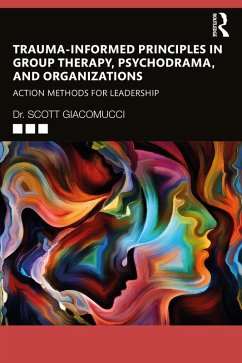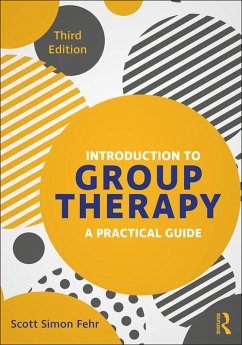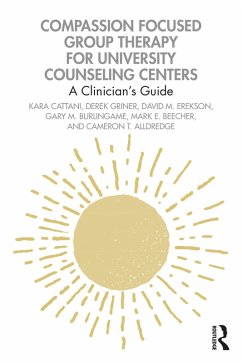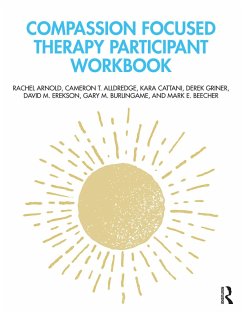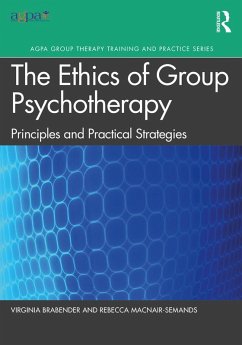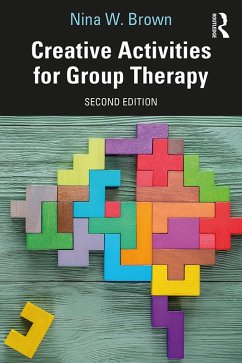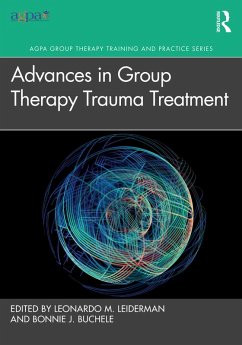
Present-Centered Group Therapy for PTSD (eBook, PDF)
Embracing Today
Versandkostenfrei!
Sofort per Download lieferbar
36,95 €
inkl. MwSt.
Weitere Ausgaben:

PAYBACK Punkte
18 °P sammeln!
Present-Centered Group Therapy for PTSD integrates theory, research, and practical perspectives on the manifestations of trauma, to provide an accessible, evidence-informed group treatment that validates survivors' experiences while restoring present-day focus.An alternative to exposure-based therapies, present-centered group therapy provides practitioners with a highly implementable modality through which survivors of trauma can begin to reclaim and invest in their ongoing lives. Chapters describe the treatment's background, utility, relevant research, implementation, applications, and implic...
Present-Centered Group Therapy for PTSD integrates theory, research, and practical perspectives on the manifestations of trauma, to provide an accessible, evidence-informed group treatment that validates survivors' experiences while restoring present-day focus.
An alternative to exposure-based therapies, present-centered group therapy provides practitioners with a highly implementable modality through which survivors of trauma can begin to reclaim and invest in their ongoing lives. Chapters describe the treatment's background, utility, relevant research, implementation, applications, and implications. Special attention is given to the intersection of group treatment and PTSD symptoms, including the advantages and challenges of group treatment for traumatized populations, and the importance of member-driven processes and solutions in trauma recovery.
Compatible with a broad range of theoretical orientations, this book offers clinicians, supervisors, mentors, and students a way to expand their clinical repertoire for effectively and flexibly addressing the impact of psychological trauma.
An alternative to exposure-based therapies, present-centered group therapy provides practitioners with a highly implementable modality through which survivors of trauma can begin to reclaim and invest in their ongoing lives. Chapters describe the treatment's background, utility, relevant research, implementation, applications, and implications. Special attention is given to the intersection of group treatment and PTSD symptoms, including the advantages and challenges of group treatment for traumatized populations, and the importance of member-driven processes and solutions in trauma recovery.
Compatible with a broad range of theoretical orientations, this book offers clinicians, supervisors, mentors, and students a way to expand their clinical repertoire for effectively and flexibly addressing the impact of psychological trauma.
Dieser Download kann aus rechtlichen Gründen nur mit Rechnungsadresse in A, B, BG, CY, CZ, D, DK, EW, E, FIN, F, GR, HR, H, IRL, I, LT, L, LR, M, NL, PL, P, R, S, SLO, SK ausgeliefert werden.





